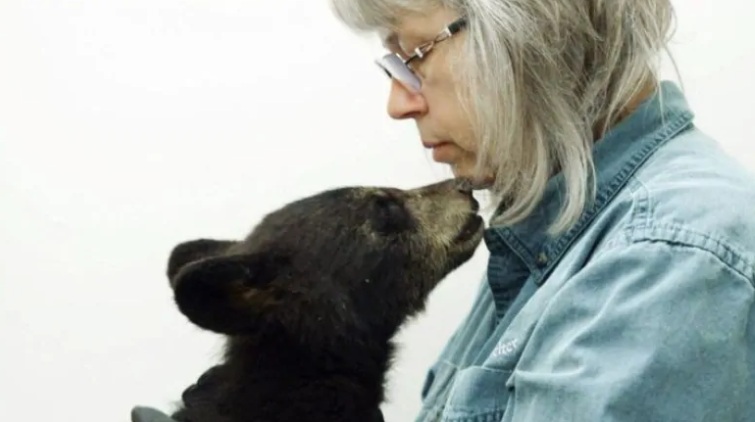
After a wildfire, one rescue worker says she often treats bears suffering from dehydration and malnutrition.
Angelika Langen has been rehabilitating bears at the Northern Lights Wildlife Society in Smithers, B.C., for 27 years.
But this summer proved especially difficult, after a number of animals she’d been treating died unexpectedly. With each death, she could feel her resolve crack.
“That takes a huge chunk out of your heart every time,” said Langen, who lives outside of the northern B.C. town.
Sometimes the loss leads her to consider quitting.
“But then there’s another animal that comes and you just pick back up again and on you go.”
After B.C.’s record-setting wildfire season, Langen is bracing to treat a number of animals, specifically bears, that have been displaced by the blazes.
While many people across the province have been forced to flee their homes due to wildfires, so too have wildlife. Fires rip through forests, destroying habitats and burning food sources.
Forced from homes
It’s not often that Langen treats a bear with a direct injury from a wildfire, but the indirect effects keep her busy.
When a bear is forced out of its territory, it will move in search of a new home. However, that new home may already be inhabited, at which point the bears will fight each other to lay claim to the patch of land.
Usually, the weaker bear will be pushed further away in search of food, creating a ripple effect, according to Langen, until it wanders into an urban area, sniffing out garbage cans for food. This represents a danger to the public and to the bear.
After a wildfire, Langen says she often treats bears suffering from dehydration and malnutrition.
A natural force of renewal
Although wildfires often cause disruption and harm to people and wildlife, there is a small silver lining, said Cole Burton, a University of British Columbia assistant professor of forestry.
“Fire is a natural force of renewal in the ecosystem,” said Burton.
He says a fire can clear out bigger vegetation and lead to the germination of seeds in the soil, creating conditions that allow certain plants to grow better.
“Sometimes that new growth is very nutritious and abundant, high-quality forage,” said Burton.

How to help?
Langen typically sees bears in need of aid once the wildfires have ended, so she’s using this period to remind the public that the best way to help is to leave bears alone.
Too often, someone will see a skinny bear and leave out food or water, she said. Very quickly, the bear will learn to expect food and eventually return for more.
“Even though you feel bad, you really need to make sure that you do not give that kind of assistance because it does not lead to a good end,” said Langen.


